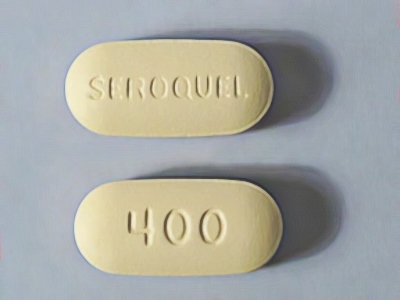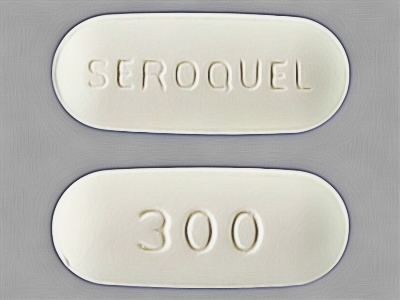Seroquel is a psychotropic medication that is mainly used to treat schizophrenia. It is also used in treating major depression and bipolar disorder. However, there’s a widespread off-label use of this medication, especially among those experiencing severe insomnia issues. If you aren’t familiar with it, the Food and Drug Administration defines off-label as the unapproved use of an FDA-approved drug. While this presents several new challenges in itself, this is especially true for Seroquel.
While Seroquel isn’t an addictive drug per se, your whole body will eventually get used to it, making it hard to stop. The withdrawal effects of this medication make it tapering off it almost as difficult as other forms of addiction. This becomes a real issue as many people struggle with the withdrawal symptoms associated with Seroquel, which gives them very little choice other than sticking with the medication. Indeed, tapering off with the help of your doctor is hard enough as it is, but this becomes even more difficult if you try stopping cold turkey.
If you’re thinking of tapering stopping Seroquel, it’s best to be fully prepared for the difficulties that come with that decision. To help you out, we’ve prepared a thorough breakdown of Seroquel withdrawal so that you will be more knowledgeable about the process.
What Is Seroquel Withdrawal?
The withdrawal symptoms for Seroquel are quite worrisome. They range from minor issues, such as itchy red skin, to more serious withdrawal side effects like heart failure. To get a better idea of this, here are the common withdrawal symptoms associated with Seroquel:
- Itchy red skin
- Vomiting
- Insomnia
- Shortness of breath
- Frequent urination
- Inflamed stomach
- Fatigue
- Joint pains
- Rapid weight fluctuations
- High anxiety
- Depression and suicidal thoughts
- Dehydration
- Brain shock
- Heart failure
- Hallucinations
- Kidney problems
Keep in mind that the timeline of Seroquel withdrawal will differ based on a slew of different factors. For instance, a significant factor that affects withdrawal is the amount of the medication an individual was taking prior to stopping. Tapering off the medication will lead to less severe symptoms rather than just stopping cold turkey. Generally, withdrawal symptoms will occur around one to two weeks after an individual stops its consumption.
While all of these withdrawal symptoms are quite problematic, one common withdrawal effect that people seem to struggle with the most is insomnia. If you’ve ever been on Seroquel, then you know how missing or forgetting to take it can make it almost impossible to get a good night’s sleep. Again, just like the other withdrawal symptoms, the severity of this is affected by the dosage of the medication and how long a person has been taking the medication. To reiterate, this isn’t due to addiction as Seroquel does not have addictive properties but is more of a case of your body getting used and being dependent on taking it.
Now, there are also certain conditions that can aggravate the already-serious symptoms of Seroquel withdrawal. In the sections below, we will also discuss this as many who want to taper off Seroquel are more likely than not to be affected by them:
Age
Age is one of the most significant factors that play into the severity of withdrawal symptoms. This is why Seroquel is not recommended for individuals younger than 13 years of age and the elderly. In fact, elderly individuals are recommended to avoid Seroquel at all costs, as it has been observed to increase the mortality rate for people with dementia-related psychosis.
Dementia
Seeing that Seroquel is often used as an off-label medication, it can sometimes be given by doctors to individuals suffering from dementia. The medication in question can sometimes be used to help temporarily calm agitated Alzheimer’s patients. However, it’s important to note that the medication’s withdrawal symptoms can get out of hand for people who suffer from dementia. This is especially true for the elderly as it can worsen memory and cause erratic behavior, both of which can prove fatal for people who live with the condition.
Other Medications or Substances
Using Seroquel with other forms of medication can also have serious repercussions for one’s physical and mental health; this is doubly true for illegal substances and alcohol. It will be in your best interest to consult with a doctor before stopping Seroquel use while you’re currently using other kinds of medication as it can make tapering off or stopping significantly harder. It is also wise to refrain from alcohol while the withdrawal symptoms are still manifesting as it can cause your condition to worsen.
Taking all the factors that contribute to how severe Seroquel’s withdrawal can be, you might be wondering how long the withdrawal effects actually last. This is purely dependent on how the medication was taken.
While addiction doesn’t really play a role in Seroquel withdrawal, it isn’t exempt from abuse. Ideally, it is supposed to be taken in low dosages that slowly ramps up to higher dosages if needed. However, people who take a high dosage of Seroquel from the get-go often continue to take high doses until their body becomes dependent on the drug. On average, it will take around 14 days for withdrawal signs to completely dissipate. But there are exemptions to this rule, which is why it will be best to consult with your doctor so that you can be properly guided throughout this entire process.
What Is Seroquel Used For?
While Seroquel’s withdrawal may seem worrisome, this doesn’t mean that the medication has no benefits. In fact, it can help manage schizophrenia, bipolar disorder, and provide adjunct treatment for major depressive disorder. Here are other uses for Seroquel:


Seroquel for Sleep
Seroquel is commonly used to help people sleep. In fact, its sedating effect can help treat insomnia. It’s important to note that the medication has to be used in low dosages when being used for this purpose. However, be wary of using Seroquel for sleep as the studies of its effectiveness and safety are still lacking.
Seroquel for Anxiety
Researchers have also found that Seroquel can be beneficial for individuals suffering from General Anxiety Disorder. This is why this medication is viewed as an alternative treatment for anxiety. Given its benefits, it’s important to remember that it can still have negative side effects even in low doses.
Seroquel Overdose
Speaking of taking Seroquel in low doses, keep in mind that the drug will be quite dangerous when used excessively. This is because overdosing on Seroquel is often mistaken for the high that can be felt when the drug is taken in high dosages. Overdosing on this medication can prove fatal without proper treatment, so it’s important that you note the common overdose symptoms, such as dizziness, drowsiness, vomiting, and an elevated heart rate. If left untreated, a person overdosing on Seroquel could faint or in more extreme cases, experience a bout of seizures.
Conclusion
Tapering off from medication that you’ve been taking for a long time can be extremely difficult. This is why you’ll want to have access to all the help you can possibly get. Instead of stopping cold turkey, be sure to ask your doctor to help you prepare and taper off your medication. This is something that you’ll want to be cautious with how you approach it as it could cause health complications if done incorrectly.
Sources:




